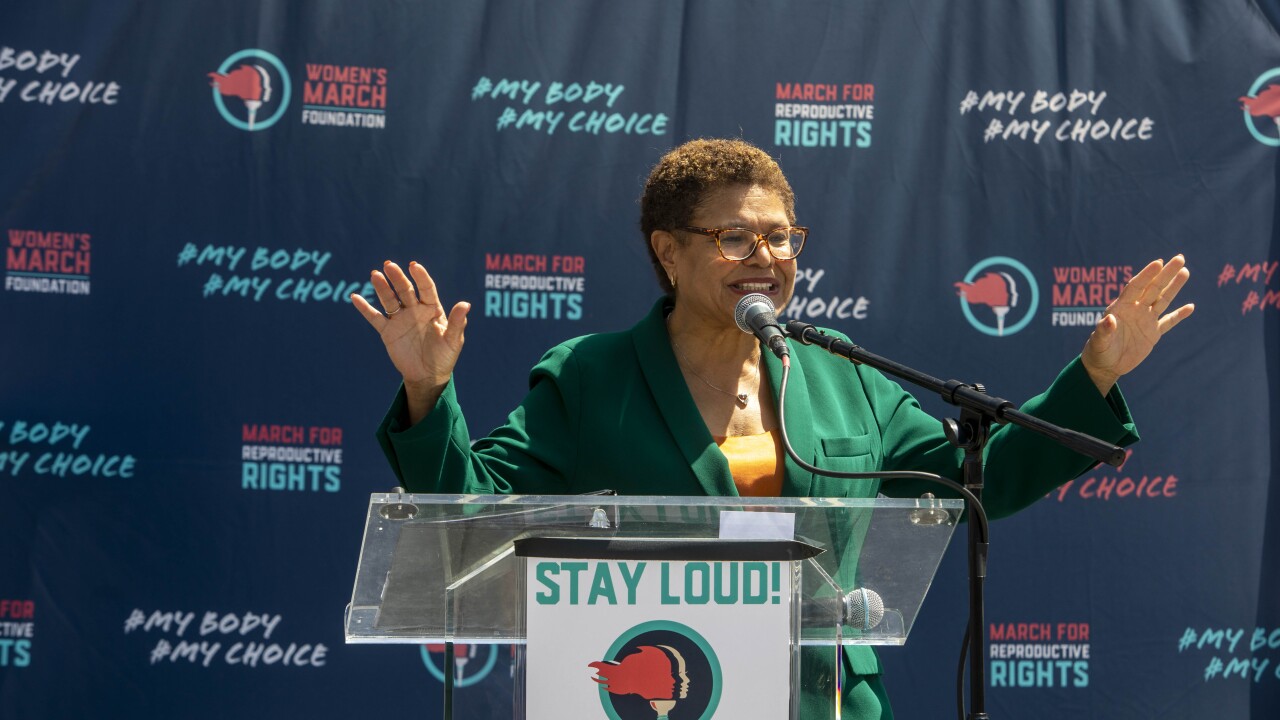New Jersey Gov. Phil Murphy proposed a $37.4 billion budget Tuesday that seeks new tax revenues amid budget challenges.
Murphy proposed in his speech in Trenton a "millionaire’s tax" to add an estimated $765 million in annual revenue for his fiscal 2019 spending plan. The Democratic governor also would revert the state sales tax to 7%; it was cut to 6.625% under Republican predecessor Chris Christie.
Murphy also wants to close what he called a a tax loophole that allows corporations to shift profit made in New Jersey to lower-taxed states

“We need these revenues to get things right,” Murphy told state lawmakers. “They will make New Jersey more, not less competitive.”
“Any tax increases proposed in the budget must be considered in the context of the new federal tax law provisions limiting deductibility of state taxes on federal returns,” said Janney Capital Markets municipal analyst Alan Schankel.
The income tax proposal may face resistance even from his own party because of concerns that many New Jersey residents will be hit by the federal tax changes that cap deductions for state and local taxes at $10,000. Murphy outlined a host of 2019 budget goals including upping funding for public schools by $341 million and New Jersey Transit by $242 million that he said could be funded through new taxes as well as scrutinizing more closely more than $8 billion in existing corporate tax credits.
Municipal Market Analytics analyst Lisa Washburn said Murphy is facing political resistance to the millionaire’s tax. Senate President Steve Sweeney, D-Gloucester, proposed an alternative to Murphy’s plan last week that would impose a 3% surcharge on corporations earning more than $1 million in net income to help increase school funding through $657 million of new revenue.
“Governor Murphy faces several obstacles in raising incremental and new revenues to fund rising legacy costs and his priorities that include increased education and infrastructure spending,” said Washburn. “His desired millionaire’s tax lacks full support…in large part because of the negative impact of tax reform on the SALT deduction.”
Democratic leadership in the
Murphy, a former Goldman Sachs executive, inherited a state that received 11 rating downgrades during Christie’s two terms, largely because of escalating unfunded pension liabilities. The state’s general obligation debt is now rated A3 by Moody’s Investors Service, A-minus by S&P Global Ratings and A by Fitch Ratings and Kroll Bond Rating Agency. Only Illinois has lower bonds rating among the U.S. states.
Murphy’s proposes contributing $3.2 billion toward the state’s pension system, which now
“Our pension crisis was decades in the making,” said Murphy, who added he plans to achieve savings within the pension system fees by divesting from hedge funds. “I do not have a magic wand capable of making everything whole again in one budget, but I am committed to continuing to ramp our payments until we get there.”
Murphy also stressed Tuesday his goal of legalizing recreational marijuana, which he says would generate $300 million in annual revenue. His efforts to advance the legalization of cannabis has met some resistance, with some lawmakers asking for more time to study the issue that could potentially delay its implementation after the 2019 fiscal year takes effect.
Murphy’s proposal to increase the sales tax to 7% came after Nuveen Asset Management released a report saying that a new 6.625% reduced sales tax that took effect on Jan. 1 “endangers” annual pension funding gains. State officials have estimated that by the 2021 fiscal year, its general fund would receive $1 billion less in revenue from the tax reductions, which Nuveen said will be a barrier toward the state’s plan of getting back to a fully funded pension system for the 2023 fiscal year.
“The governor’s campaign goals such as instituting tuition-free community college and increasing funding for school districts will compete with rising pension costs,” said Nuveen senior research analyst Kristen DeJong in her report. “Should the state deviate from its planned pension funding increases, it would likely result in its credit rating falling into the BBB range.”
Murphy said only 1% of the proposed budget is comprised of one-shot revenues. He has until June 30 to get a spending plan approved by the legisalture before the 2019 fiscal year commences on July 1.





